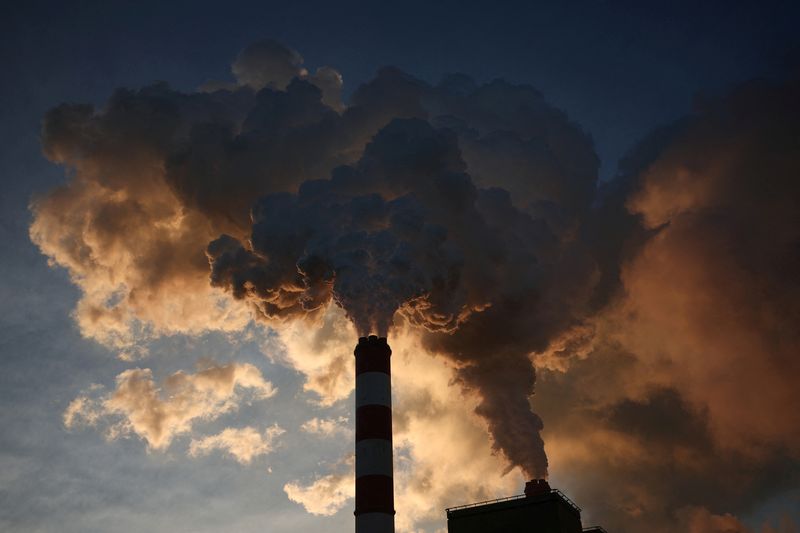
By Francesca Landini
TURIN (Reuters) -Energy ministers from the Group of Seven (G7) wealthy countries reached a deal to shut down their coal-fired power plants by 2035 at the latest, in a significant step towards the transition away from fossil fuels.
“We have an agreement to stop using coal in the first half of 2030’s… it is an historical agreement,” Britain’s minister for Energy Security and Net Zero Andrew Bowie told Class CNBC according to a video posted on X.
Italian diplomatic sources said a technical deal had been reached.
The accord will be included in the G7 energy ministers’ final communique to be released on Tuesday at the end of a two-day meeting in Turin.
One source told Reuters earlier that diplomats from the G7 nations – Italy, the United States, Britain, France, Germany, Canada and Japan – discussed the issue until late on Sunday, before the start of the ministerial gathering.
The agreement marks a significant step in the direction indicated last year by the COP28 United Nations climate summit for a transition away from fossil fuels, of which coal is the most polluting.
“It helps accelerate the shift of investments from coal to clean technology in particular in Japan and more broadly in the whole Asian coal economy, including China and India,” Luca Bergamaschi, co-founding member of Italian climate change think-tank ECCO, said on X.
Italy last year produced 4.7% of its total electricity through its six remaining coal-fired stations. Rome currently plans to turn off its plants by 2025, except on the island of Sardinia where the deadline is 2028.
remove ads
.
In Germany and Japan coal has a bigger role, with the share of electricity produced by the fuel higher than 25% of total last year.
Last year under Japan’s presidency, the G7 had pledged to prioritise concrete steps towards phasing out coal power generation, falling short of indicating a specific deadline.











